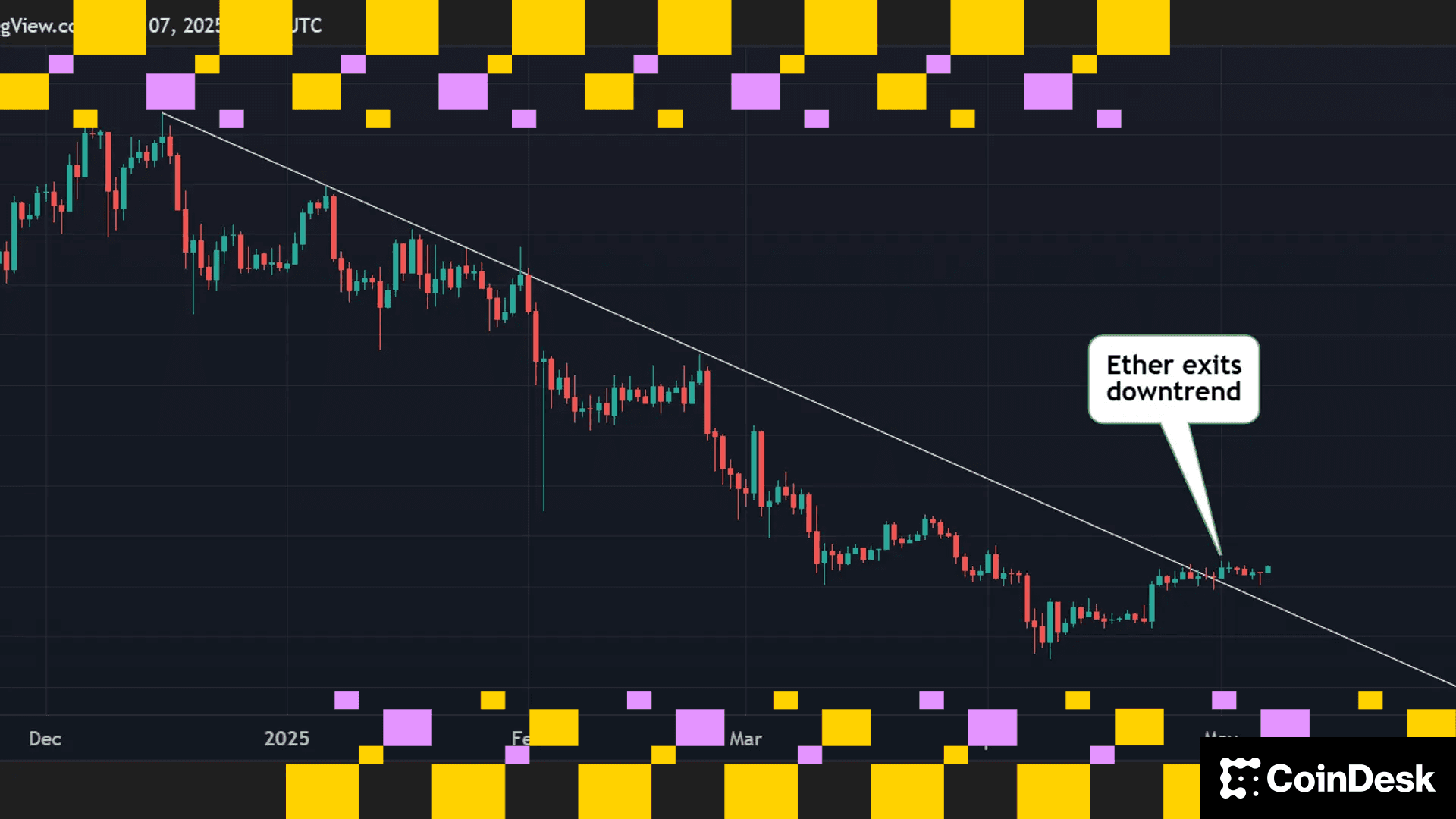Bitcoin Not a Safe Haven From Geopolitical Risks, but Still Buy the Dip: Standard Chartered
Risks stemming from the Middle East conflict are likely to push bitcoin below $60K before the weekend, the report said.

- Bitcoin is likely to weaken below $60K, but investors should buy the dip, the report said.
- Standard Chartered said that the digital asset is not a safe haven against geopolitical risk.
- The bank wrote that bitcoin is a hedge against traditional financial issues.
Geopolitical risk related to the ongoing conflict in the Middle East will likely weigh on the bitcoin
The world's largest cryptocurrency is not a safe haven against geopolitical risks, the report said.
"Gold is a geopolitical hedge," wrote Geoff Kendrick, global head of digital assets research at Standard Chartered, adding that "BTC is a hedge against TradFi issues such as bank collapses or de-dollarisation/U.S. Treasury issues."
The bank noted that geopolitical concerns depressed the bitcoin price while at the same time increasing Donald Trump's odds of winning the U.S. election in November, "which improves BTC's post-election probabilities."
Options market activity also supports this view, with open interest for the bitcoin December expiry at 80,000 jumping in recent days, the report noted.
Bitget Research echoed this positive sentiment. "Despite the general downturn, institutional investors continue to buy digital currency at a rate at par or higher than the quantity mined daily," said Ryan Lee, chief analyst of Bitget Research, in emailed comments.
Bitcoin was trading around $60,500 at publication time, falling about 0.4% on the day, while broader crypto market index CoinDesk 20 (CD20) fell 5.5%.
Read more: Cryptocurrencies Continue to Outperform the Stock Market: Canaccord
More For You
Exchange Review - March 2025

CoinDesk Data's monthly Exchange Review captures the key developments within the cryptocurrency exchange market. The report includes analyses that relate to exchange volumes, crypto derivatives trading, market segmentation by fees, fiat trading, and more.
What to know:
Trading activity softened in March as market uncertainty grew amid escalating tariff tensions between the U.S. and global trading partners. Centralized exchanges recorded their lowest combined trading volume since October, declining 6.24% to $6.79tn. This marked the third consecutive monthly decline across both market segments, with spot trading volume falling 14.1% to $1.98tn and derivatives trading slipping 2.56% to $4.81tn.
- Trading Volumes Decline for Third Consecutive Month: Combined spot and derivatives trading volume on centralized exchanges fell by 6.24% to $6.79tn in March 2025, reaching the lowest level since October. Both spot and derivatives markets recorded their third consecutive monthly decline, falling 14.1% and 2.56% to $1.98tn and $4.81tn respectively.
- Institutional Crypto Trading Volume on CME Falls 23.5%: In March, total derivatives trading volume on the CME exchange fell by 23.5% to $175bn, the lowest monthly volume since October 2024. CME's market share among derivatives exchanges dropped from 4.63% to 3.64%, suggesting declining institutional interest amid current macroeconomic conditions.
- Bybit Spot Market Share Slides in March: Spot trading volume on Bybit fell by 52.1% to $81.1bn in March, coinciding with decreased trading activity following the hack of the exchange's cold wallets in February. Bybit's spot market share dropped from 7.35% to 4.10%, its lowest since July 2023.
More For You











